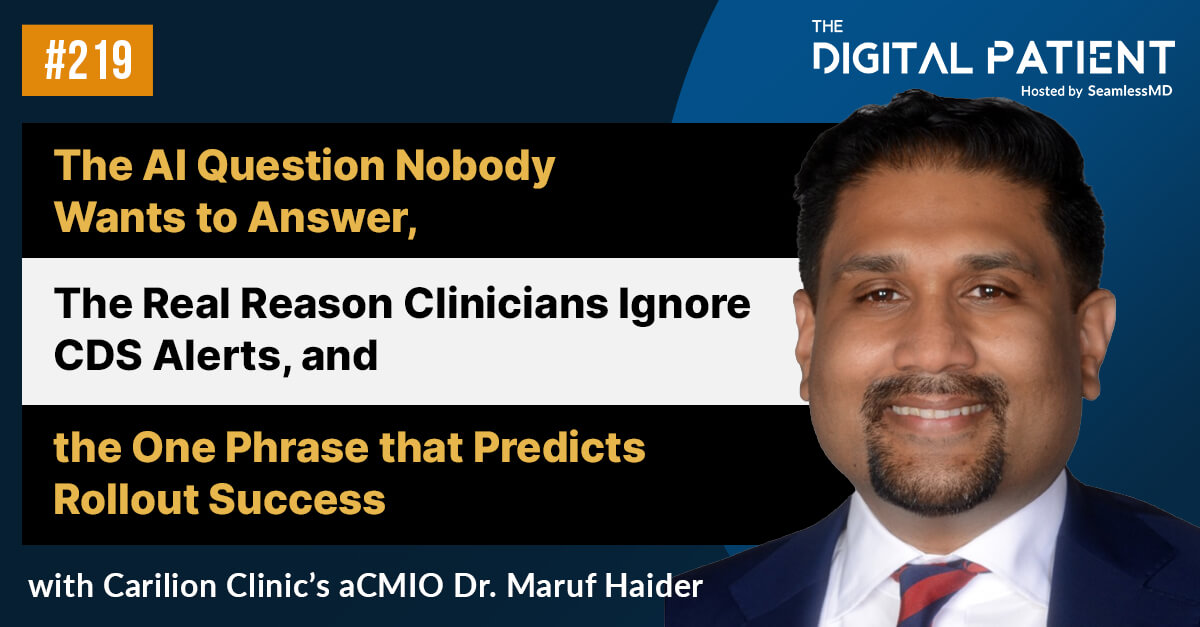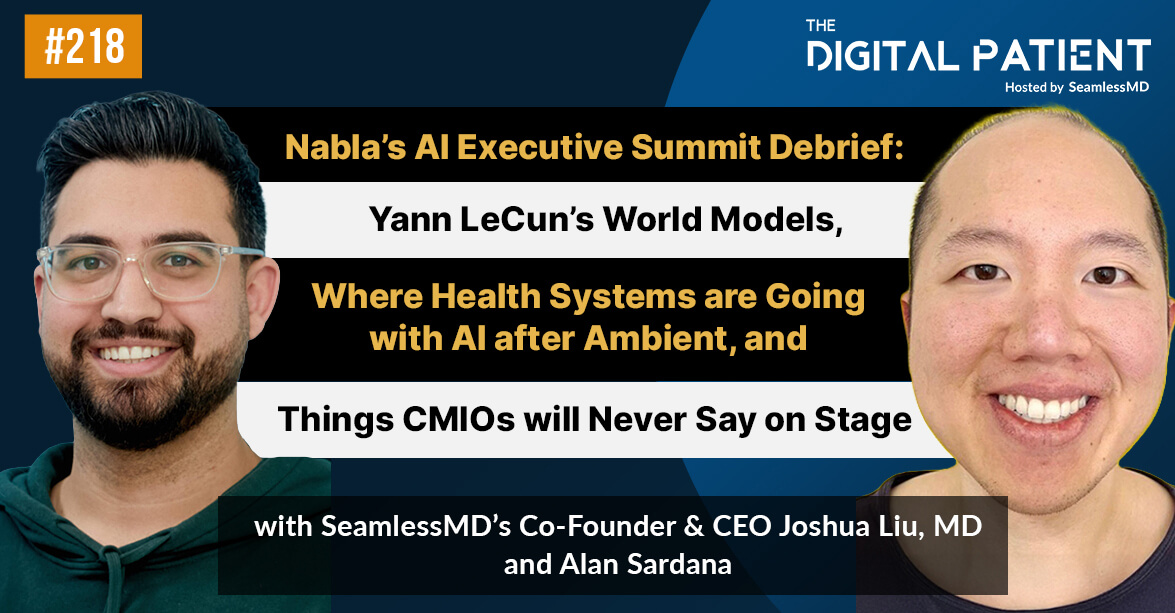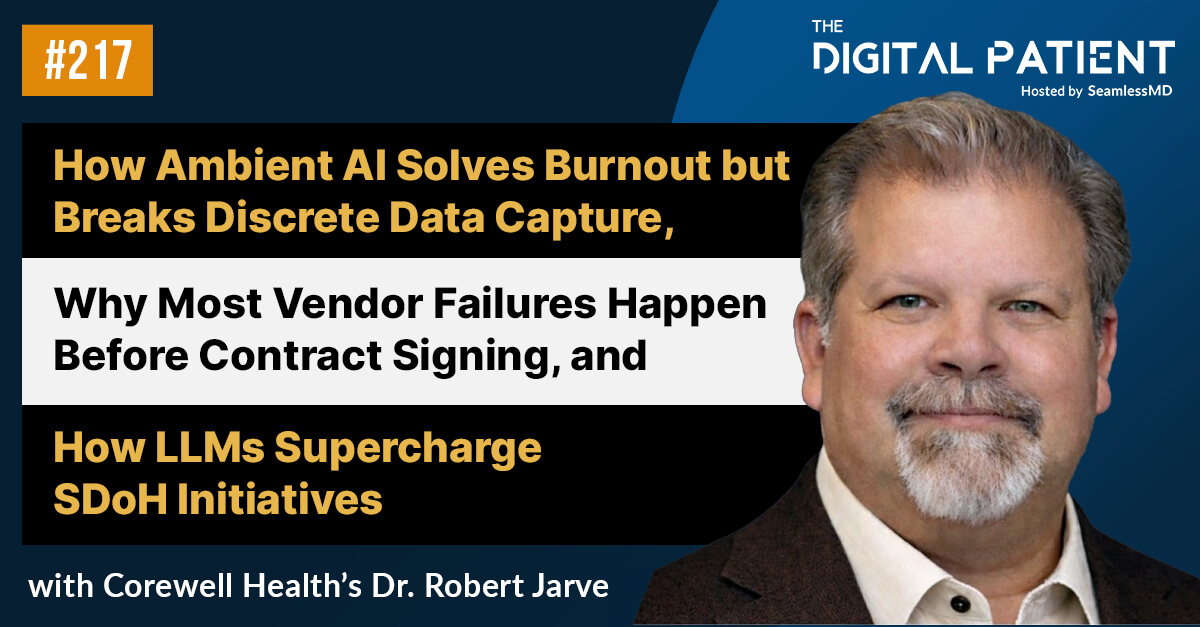Health systems are facing unprecedented challenges: an on-going pandemic, increasing shifts to value-based care, rising consumer expectations and growing financial constraints. In early October 2022, health system leaders across North America gathered in Chicago at the 7th Annual Becker’s Health IT + Digital Health + RCM Meeting to strategize, explore and discuss how Digital Health Transformation is playing a critical role in tackling these challenges. What became clear by the end of the event is that Digital Health leaders are no longer satisfied with pretty user interfaces - what matters are Digital Health solutions that deliver on both better consumer experiences and improved clinical outcomes.
From the opening keynote panel, patients as digital-savvy consumers was a theme that rang true throughout the event. Tony Ambrozie, Chief Digital and Information Officer at Baptist Health South Florida, shared that his health system’s digital transformation priorities start with Consumers, which is closely followed by Patients, Providers and Operations.For more of insights on transforming the healthcare consumer experience, check out our recent interview.
Brian Dobosh, VP Digital Systems at RWJBarnabas Health shared a very similar sentiment for putting the consumer patient journey first. It is not enough to simply provide digital patient experiences; rather, Brian has his team deliver digital patient experiences that prioritize Equity, Experience and Engagement.
Leaders also touched on the collaboration between Digital and Clinical leaders. “Consumer apps should be led by Digital. Clinical apps should be led by clinicians,” shared Sara Vaezy, Chief Strategy Digital Officer at Providence, a recent guest on The Digital Patient podcast. Where the digital consumer journey crosses into clinical care, such as patients apps for pre and post-surgery, clinical leaders must be highly involved to ensure such solutions can meet the bar for delivering clinical outcomes.
CMIOs and other physician digital health leaders also weighed on the importance of clinically-proven digital health solutions. Dr. Edward Lee, Chief Information Officer for The Permanente Federation (Kaiser Permanente) advocated for health systems to focus on patient apps that are backed by strong clinical evidence: “There are lots of Apps - but what matters is if they actually improve clinical outcomes!”
Dr. James Blum, CMIO of the University of Iowa Health Care, has been an audience to many pitches from Digital Health vendors and expressed concern that “most digital health solutions lack real clinical evidence”. What Dr. Blum and other medical leaders want from vendors is to “show us the data on improving outcomes!”
The role of health literacy and accessibility were also highlighted as key expectations for patient-facing digital health solutions. Dr. Dusadee Sarangarm, CMIO of University of New Mexico Health System - shared her own personal experiences as a patient saying, “I’m a doctor and sometimes I don’t even understand instructions from my doctor!”. This led to Dr. Sarangarm being a major advocate for health literacy. Other leaders nodded in agreement, that health literacy and accessibility as guiding principles must extend from paper-based instructions to digital health solutions as well. In fact, for clinical leaders such as Dr. Emily Webber, CMIO of Indiana University Health, meeting health literacy standards in patient apps should be table stakes: “good health literacy in tech is just the starting point - ultimately it’s about achieving better clinical outcomes.”
Personalized digital health experiences were also key. Dr. Albert Chan, Chief Digital Health Officer at Sutter Health, distilled his digital patient experience priorities to two items: (1) reducing friction to high quality care; and (2) hyperpersonalization to each patient. Dr. Chan emphasized that the key to delivering great care is ensuring great access to care: “ if there’s no access, it doesn’t matter how good our care is!”
And while AI and Machine Learning were exciting terms the last few years, healthcare leaders have realized that results need to be the goal. Aaron Miri, Chief Digital & Information Officer, Baptist Health spoke strongly on this topic, adding, “Digital Health needs to get away from buzzwords and chasing shiny toys, such as AI. Let’s focus on helping providers to deliver care first and foremost.”
While the pandemic sparked unprecedented adoption of virtual care and digital health solutions, it’s clear that health system leaders are focused on delivering tangible results. Digital health leaders, both clinicians and non-clinicians alike, are aligned on the belief that the best solutions are clinically-proven and are focused on delivering strong health outcomes. This new bar for digital health is ushering in an exciting new era that truly puts patients first.
Let’s continue the conversation.
You can connect with us at CHIME Fall Forum November 7-10, in San Antonio or stop by our booth T10 at the 5th Annual ERAS USA Congress November 10-12 in Washington, DC.
.svg)










.png)
